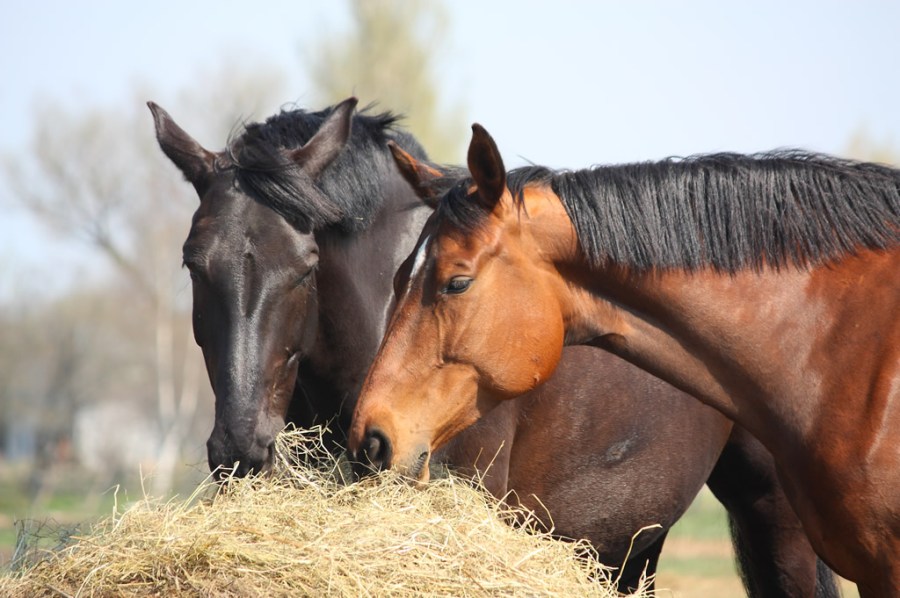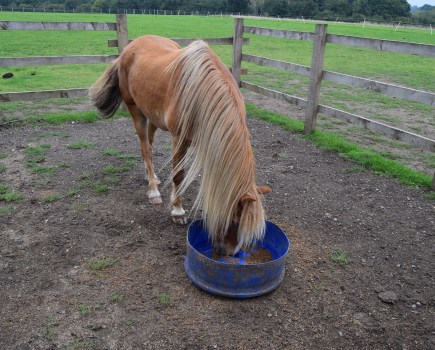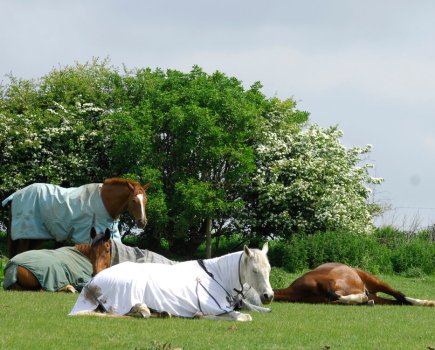In partnership with Dodson & Horrell
Whilst sugar provides energy to help fuel your horse’s performance, too much can cause excess weight gain and put him at risk for a number of health issues, such as laminitis. Dr Laura Wilson (BVM&S MRCVS), a technical adviser at Dodson & Horrell, shares tips on how limit your horse’s sugar intake.
- Forage type and volume fed should be considered carefully. Don’t underestimate the contribution that grazing can make to the diet.
- Soaking hay can reduce the sugar content. It is important to note that the effect of this depends on the plant type, time spent soaking, and the volume and temperature of the water used.
- Restricted grazing may be required to limit sugar intake. Sugar in the grass is typically highest during periods of more rapid growth in the late spring and summer months. Limited time spent turned out, restricting the grazing area, and using a grazing muzzle can all help.
- Sugar in grass can vary seasonally, during growth flushes, and with the time of the day. Typically, sugar levels rise through the morning, peak in the afternoon and then decline overnight. Therefore, stabling through the day and turning your horse out overnight may help to limit sugar intake.
- Select complementary feeds for the individual. Make sure you meet your horse’s vitamin and mineral requirements without exceeding their energy needs, depending on their age, breed and activity level.
- When assessing a manufactured feed, use the weight fed and percentage of sugar together to assess sugar contribution to the diet using the recommended feeding rate. For instance, a standard balancer fed at 500g daily and a low-sugar mix fed at 2kg daily could have the say percentage of sugar – for example, 5.5%. However, 5.5% of 500g is 27.5g sugar, whereas 5.5% of 2kg is 110g.
If you want to know more about the sugar content of your horse’s feed, what their likely requirements are, and what the best diet for them would be, your feed company’s nutritional helpline is a fantastic resource to help construct a tailored plan to meet your horse’s individual needs.
![]() Have you heard about Your Horse’s #FitNotFat campaign, which is supported by Dodson & Horrell? Equine obesity is an enormous welfare problem and we’re on a mission to provide owners and riders with the knowledge, skills and information you need to keep your horse in tip-top health. It could be life saving! Find out more
Have you heard about Your Horse’s #FitNotFat campaign, which is supported by Dodson & Horrell? Equine obesity is an enormous welfare problem and we’re on a mission to provide owners and riders with the knowledge, skills and information you need to keep your horse in tip-top health. It could be life saving! Find out more








